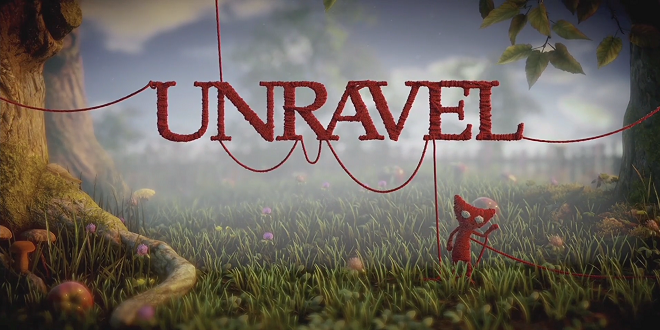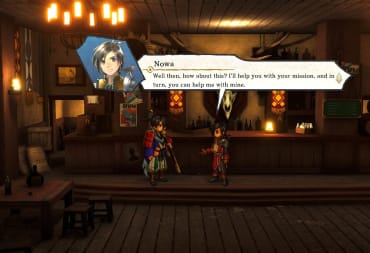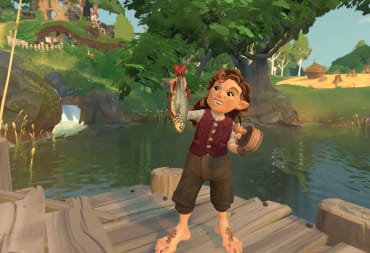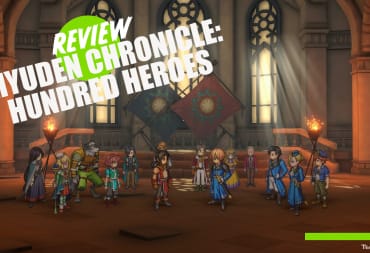Indie gaming has come a long way in the past decade. Arguably taking off due to Jenova Chen’s flOw and Jonathan Blow’s Braid in terms of mainstream potential, indie games are now part and parcel with the fabric of the gaming industry, often in good and bad ways. Good for giving us fresh ideas and unique takes on tried and true concepts, bad for the glut of titles that struggle to find an audience or relevancy, because of bad design, a derivative nature or a misplaced trust in nostalgia.
It is not unusual, then, to see the AAA market getting in on the act. Electronic Arts, in this case, has been doing so for years now. Titles such as Shank, Deathspank and Warp are some examples of their foray into the independent scene, mostly thanks to the EA Partners Program. Now, Coldwood Studios is up to bat with Unravel, a puzzle-platformer that follows the adventures of Yarny, a lovable, living being of yarn.
Unravel is a very simple game, and that is not necessarily a mark against it. It is simple in its mechanics, simple in its design, and simple in its message. It tugs at your heartstrings, but it never feels artificial, utilizing a combination of visuals, music and animation to provide context to the game. Yarny is expressive, shivering when cold or wet, eyes wide when reminiscing on memories long past, even inquisitive when investigating strange environments. His expressions go a long way in creating a mood that Yarny and the game share, a sense of hopefulness and wonder of what once was, and reverence for the love of simple things that brought us this joy.
This is Unravel’s underlying theme, and it is what makes the game so charming. Coldwood Studios designed the world of Unravel to be a warm, homely take on the mundane of our surroundings. Basing the level design on northern Sweden, the developers succeed at this task in spades; it is rare for a game to invoke emotion with rusted gates, plastic bags in the wind or a lantern in a snowstorm. Each environment feels large and for us, mundane or negligible in comparison to Yarny's point of view. Yet Yarny is able to go on this emotional adventure, and does so in twelve levels that feel right at home in our world and make you appreciate the smaller things in our lives in a way few games can.
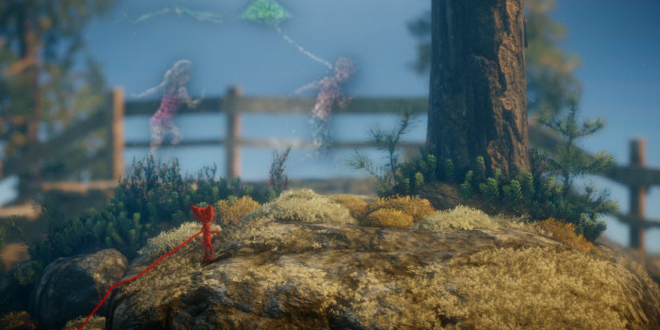
Unravel is sadly not able to keep that momentum going throughout the experience, with the gameplay itself showing the seams of its own design. The level design alone is quite good, but often overstays its welcome by having worlds that are too long and moments telegraphed by in-game mechanics. Checkpoints, for example, are sectioned off by extra balls of yarn, which Yarny interacts with as he literally unravels as the level progresses. The problem is these checkpoints occur after every puzzle or section in a given level, and it is usually obvious what course of action you have to take to progress further into the game, leaving all the challenge and surprise of the gameplay out the window completely.
All of the puzzles in Unravel are basically physics and time-based problems that feature simple solutions. Some have you making bridges to guide an object to an obstacle, some have you swinging through objects or holding down levers to keep doors open. Others are based on the path you choose, given only enough yarn to progress without making a mistake.
The problem is, much like the world of Unravel, the solutions to these puzzles is typically mundane. The game itself is rather easy to go through once you have the rhythms of the puzzles down, and save for a few sequences and areas it almost becomes second nature. When you see two nails on an incline, for example, it’s instinctive to make a bridge and find an object to push and pull. Unravel is less frustrating than most puzzle-platformers through this, relishing in the simplicity of their design. Like its underlying theme, even the game mechanics and gameplay flow are simple, and for some it may be too simple by the standards of 2016.
While it may be considered a turnoff that the game doesn't offer a substantial challenge, it also doesn’t have to either. Unravel works because of these simple charms, it is an independent game in spirit that way with a singular goal in telling a story; but it also suffers from its own limitations in the end through its gameplay. Such a limitation, often shared by many indie titles, leaves Unravel in an uncomfortable position of being an experience first, and a game second, which for many is irreconcilable.
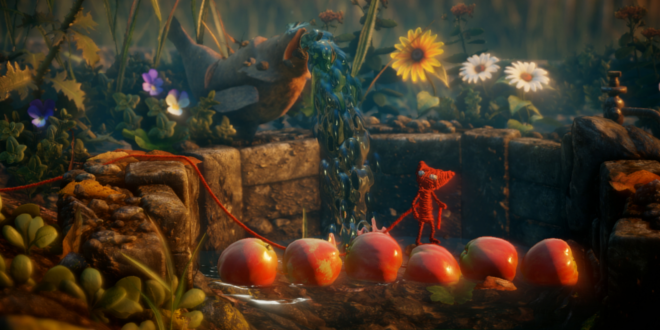
In keeping with the simple approach, Unravel's gameplay follows the platforming playbook to the letter. Yarny can jump, climb, and set up bridges with his yarn, swinging from hooks and making bridges to progress through the twelve levels. Outside of this, there is nothing else to really say about Unravel, it plays like a lot of platformers out there, and in a world of indie games galore, it will no doubt struggle to stand out because of the mundane use of the genres mechanics.
The major focus of Unravel has been in its presentation, and for good reason. Through aesthetics, Unravel is visually beautiful in every respect. The use of natural environments and manmade constructs gives Unravel an unparalleled realism, and each moment in the snow, the rain, the mountains or a marshland simply oozes visual perfection that no doubt would be impossible without EA's production team behind it.
Music is another area that excels, sporting a folksy soundtrack using violins, piano, guitar and other instruments to create an excellent mood. Musicians Henrik Oja and Frida Johansson make sure the music of Unravel evokes the audio storytelling we see in lots of classic platforming titles. We have moments of catchy tunes juxtaposed by dark and moody tracks, each musical cue fitting into the action on-screen perfectly. Coldwood has stated that music is an important way to help set the tone of any story. In the case of Unravel, it hits the mark so well that the music alone is a perfect reason to recommend the title to potential buyers.
The bells and whistles of Unravel put other indie games to shame of course, and it is clear that EA being a part of the production and distribution of the game is at work there. At its heart, however, Unravel has the hopefulness and charisma of the developers to back up its simple design, and that shines through in the end. Take all the pretty graphics and sound away, and Unravel would still evoke the same emotions with a heart-felt cry for reverence and memories of a time long past.
It really doesn’t matter how mundane Unravel may be to play. Clocking in at about ten hours, the journey of Yarny will never be a grand epic nor a massive experience to go through. A player's experience with Unravel is just as true, just as genuine as our interactions with friends and family. Like any good indie game, it allows the player to partake in an emotional meditation, in this case our past memories and where we go next. Sometimes full of joy, sometimes downright depressing or scary, Unravel is a good, if simple game, and it deserves a look for anyone remotely interested in indie titles or puzzle-based platformers.
Unravel was reviewed after a total of 10 hours, and was played on PlayStation 4 with a code provided by the publisher.
Review Summary
A simple, emotional journey that is also simple to play, Unravel works at endearing you despite the mundane mechanics behind the journey.
(Review Policy)Have a tip, or want to point out something we missed? Leave a Comment or e-mail us at tips@techraptor.net
